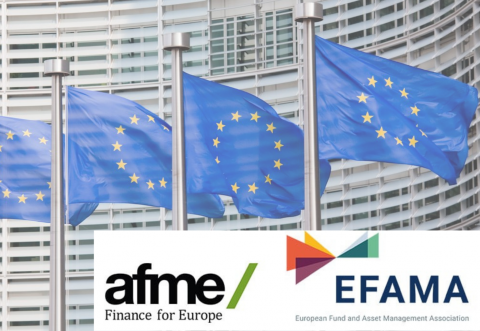EFAMA welcomes the opportunity to respond to the EC’s targeted consultation on the EU’s central clearing framework. We are pleased to find in this consultation document a fair reflection of the complexity of the CCP ecosystem and consistency with the issues raised in previous dialogues held with the European Commission. In that same spirit, we hope in our response to provide feedback that resonates with the EC’s broader policy objectives while minimizing systemic risk and undue harm to our industry.
European Market Infrastructures regulation (EMIR)
In 2012, following the 2008 financial crisis, the EU adopted the European Market Infrastructures regulation (EMIR) with the laudable objectives of increasing transparency in the OTC derivatives markets, to reduce the counterparty risk of derivatives contracts and to reduce operational risks associated with derivatives trading.
EFAMA welcomes the improvements recently brought by the EMIR Refit: It redefines the obligations imposed on derivatives users, recognising and solving some issues previously existing in EMIR, such as the disproportionate regulatory burden imposed on the least risky counterparties. We also advocate for a better alignment between EMIR and MiFIR, especially with regards to the clearing and trading obligations.
EU Com targeted consultation on the review of the central clearing framework in the EU
EFAMA views and recommendations on ESMA's consultation on the review of EMIR RTS on APC margin measures
The European Fund and Asset Management Association (EFAMA) welcomes the opportunity to respond to this important review of RTS 153/2013 and accompanying guidelines, in light of the procyclicality witnessed during the peak volatility of the Covid crisis. European CCPs already have standard anti-procyclicality tools in their rulebooks and this did lead to less volatile moves in margin in Europe versus other jurisdictions.
ESMA consultation on the review of clearing thresholds under EMIR
For asset managers the main issue continues to be the reclassification of ETDs as OTCs as a result of the non-equivalence of UK regulated markets. While we understand that a review is legally mandated at this point in time, we do not see value in recalibrating the various thresholds or making changes to the calculation methodologies unless these are in the two areas we define below. Our main concern revolves around the fact that changes would carry significant compliance costs while making little impact on the population of counterparties and notional captured by the thresholds.
ESMA's consultation paper on conditions of the Active Account Requirements
EFAMA has submitted its response to ESMA’s consultation on the Active Account Requirements (AAR). Our industry stands ready to implement the AAR by June 2025... However, we have strong reservations about the heavy and redundant reporting requirements.
Joint industry statement on EMIR3.0 effective implementation dates
EFAMA, EBF, AIMA, FIA and ISDA (the ‘Associations’) welcome the co-legislators' political agreement on EMIR 3.0, which was endorsed by the Council and European Parliament on 14 February and 4 March 2024, respectively.
Trade associations call for deletion of active account proposal in EMIR 3.0
EFAMA, BFPI Ireland, EACB, FIA EPTA, Federation of the Dutch Pension Funds, Finance Denmark, Nordic Securities Association, AIMA, ICI Global, FIA and ISDA, which collectively represent major European end users of derivatives along with providers of clearing services, have published a joint statement on the European Commission’s proposed active account requirement under the European Market Infrastructure Regulation (EMIR 3.0).

































